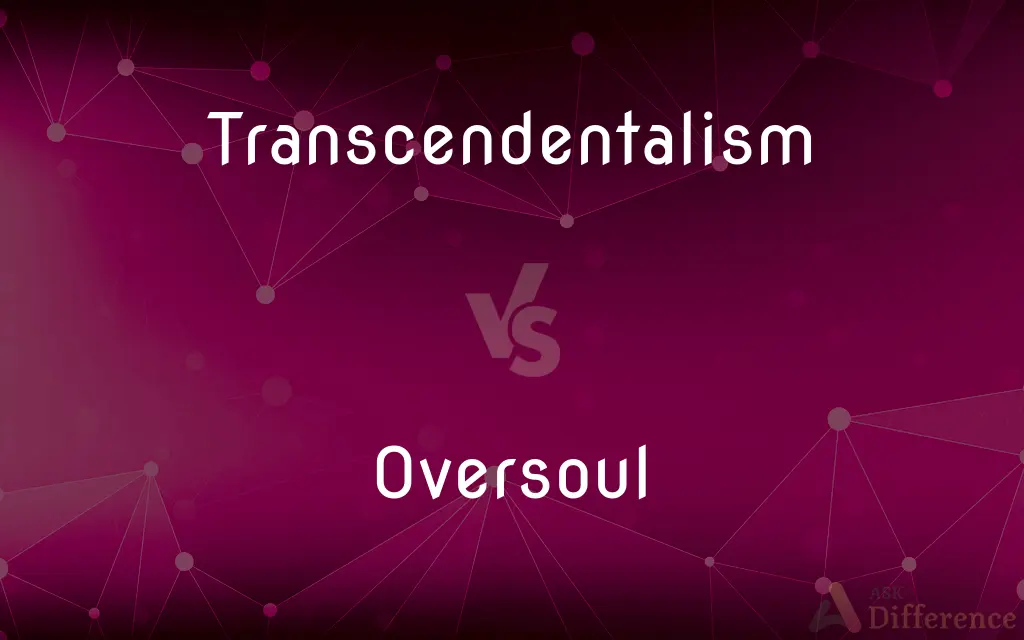Transcendentalism vs. Oversoul — What's the Difference?

Difference Between Transcendentalism and Oversoul
ADVERTISEMENT
Compare with Definitions
Transcendentalism
Transcendentalism is a philosophical movement that developed in the late 1820s and 1830s in the eastern United States. A core belief is in the inherent goodness of people and nature, and while society and its institutions have corrupted the purity of the individual, people are at their best when truly "self-reliant" and independent.
Oversoul
In the transcendentalism of Ralph Waldo Emerson, a spiritual essence or vital force in the universe in which all souls participate and that therefore transcends individual consciousness.
Transcendentalism
Often Transcendentalism A literary and philosophical movement arising in 19th-century New England, associated with Ralph Waldo Emerson and Margaret Fuller and asserting the existence of an ideal spiritual reality that transcends empirical and scientific reality and is knowable through intuition.
Oversoul
A supreme reality or mind; the spiritual unity of all being.
Transcendentalism
The quality or state of being transcendental.
ADVERTISEMENT
Oversoul
The all-containing soul.
That unity, that oversoul, within which every man's particular being is contained and made one with all other.
Transcendentalism
The transcending, or going beyond, empiricism, and ascertaining a priori the fundamental principles of human knowledge.
Transcendentalism
Ambitious and imaginative vagueness in thought, imagery, or diction.
Transcendentalism
A philosophy which holds that reasoning is key to understanding reality (associated with Kant); philosophy which stresses intuition and spirituality (associated with Ralph Waldo Emerson); transcendental character or quality.
Transcendentalism
A movement of writers and philosophers in New England in the 19th century who were loosely bound together by adherence to an idealistic system of thought based on a belief in the essential supremacy of insight over logic and experience for the revelation of the deepest truths.
Transcendentalism
The transcending, or going beyond, empiricism, and ascertaining a priori the fundamental principles of human knowledge.
Transcendentalism
Ambitious and imaginative vagueness in thought, imagery, or diction.
Transcendentalism
Any system of philosophy emphasizing the intuitive and spiritual above the empirical and material
Share Your Discovery

Previous Comparison
Oyster vs. Teriyaki
Next Comparison
Caravan vs. Carriage















































